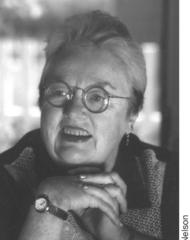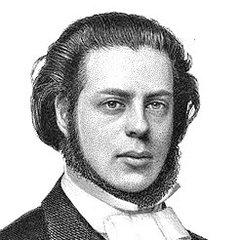Rebecca Harding Davis Quotes
Rebecca Harding Davis (2016). “Life in the Iron-Mills”, p.21, Lulu.com
Rebecca Harding Davis (2016). “Life in the Iron-Mills”, p.11, Lulu.com
Rebecca Harding Davis (2010). “Rebecca Harding Davis's Stories of the Civil War Era: Selected Writings from the Borderlands”, p.20, University of Georgia Press
Rebecca Harding Davis (1904). “Rebecca Harding Davis: Writing Cultural Autobiography”, p.88, Vanderbilt University Press
Rebecca Harding Davis (2016). “Life in the Iron-Mills”, p.21, Lulu.com
Rebecca Harding Davis (1904). “Rebecca Harding Davis: Writing Cultural Autobiography”, p.71, Vanderbilt University Press
Rebecca Harding Davis (1904). “Bits of Gossip”
War may be an armed angel with a mission, but she has the personal habits of the slums.
Rebecca Harding Davis (1904). “Rebecca Harding Davis: Writing Cultural Autobiography”, p.15, Vanderbilt University Press
North and South were equally confident that God was on their side, and appealed incessantly to Him.
Rebecca Harding Davis (1904). “Rebecca Harding Davis: Writing Cultural Autobiography”, p.76, Vanderbilt University Press
Rebecca Harding Davis (1904). “Bits of Gossip”
America may have great poets and novelists, but she never will have more than one necromancer.
Rebecca Harding Davis (1904). “Bits of Gossip”
Rebecca Harding Davis (1904). “Rebecca Harding Davis: Writing Cultural Autobiography”, p.49, Vanderbilt University Press
Rebecca Harding Davis (2006). “Life in the Iron-mills: Easyread Edition”, p.11, ReadHowYouWant.com
Rebecca Harding Davis (1904). “Rebecca Harding Davis: Writing Cultural Autobiography”, p.23, Vanderbilt University Press
Rebecca Harding Davis (1904). “Rebecca Harding Davis: Writing Cultural Autobiography”, p.76, Vanderbilt University Press
Rebecca Harding Davis (1904). “Rebecca Harding Davis: Writing Cultural Autobiography”, p.62, Vanderbilt University Press
It has happened to me to meet many of the men of my day whom the world agreed to call great.
Rebecca Harding Davis (1904). “Rebecca Harding Davis: Writing Cultural Autobiography”, p.48, Vanderbilt University Press
Rebecca Harding Davis (1904). “Rebecca Harding Davis: Writing Cultural Autobiography”, p.23, Vanderbilt University Press
You were only truly patriotic if you had a laborer for a grandfather and were glad of it.
Rebecca Harding Davis (1904). “Rebecca Harding Davis: Writing Cultural Autobiography”, p.45, Vanderbilt University Press
"Rebecca Harding Davis: Writing Cultural Autobiography".







